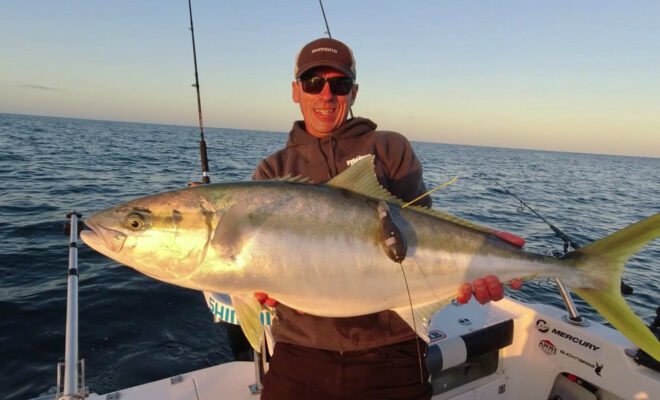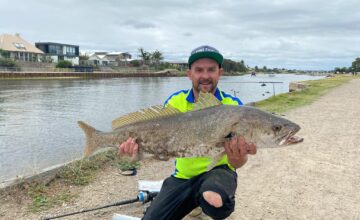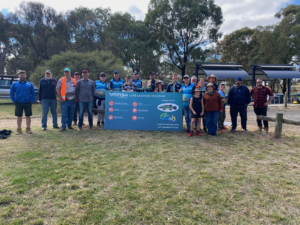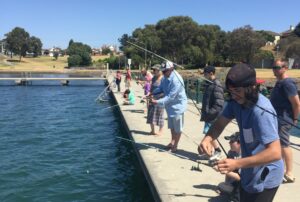January 30, 2024
Photo from Project Kingfish Facebook: Jason Taylor with 98cm kingfish tagged in Victoria
Project Kingfish seeks to unveil the secret lives of yellowtail kingfish in eastern Australia.
Yellowtail kingfish (Seriola lalandi) are one of the most valued fish species in the country yet relatively little is known about the species, particularly of the ‘Eastern Australia’ biological population which spans across SA, VIC, TAS, NSW, QLD and NZ. Some of the major knowledge gaps about the eastern kingfish population include the distribution and behaviour of reproductive fish, the location of key spawning habitats and how the species recruits to the coast.
To enhance the current understanding of the species, the Sydney Institute of Marine Science is leading Project Kingfish a collaboration between scientists and expert recreational anglers to collect urgently needed information and fill knowledge gaps about the reproductive kingfish population.
The project aims to track movements of mature, spawning-sized yellowtail kingfish (>95cm in length) by deploying satellite tracking devices to uncover where they go to spawn, how they connect across fisheries jurisdictions and how they recruit to the coast.
The project team are using a range of research approaches including biochemical analyses, satellite tracking technology and computer modelling, to produce novel scientific information that will enhance the knowledge of the eastern Australia kingfish population.
The satellite tags used by the research team are pre-programmed to collect data on their location, swimming depth, ambient sea temperature and overall activity every second for up to 12 months. They’re small tags, weighing only 57 grams. When the tag releases from the fish, it floats to the surface to begin transmitting the stored data to satellites.
In early 2023, the project expanded to Victoria as collaborators at Deakin University were successful in securing funding via the Victorian Fisheries Authority’s Recreational Fishing Large Grants program to deploy acoustic tags and satellite tags on Victorian kingfish over a three-year period.
In April 2023, Project Kingfish collaborators from Deakin University tagged large, mature Victorian kingfish using satellite tags. Jason Taylor tagged a record breaking 98cm kingfish. Its tag detached early, however, it recorded the first cross-jurisdictional movements by a satellite tagged kingfish in the region. In fact, within a 3-month period, it travelled more than 940 kilometres through three different fisheries jurisdictions. It also logged one of the deepest dives the project has seen so far, a maximum depth of 475 metres.
It’s also the most southerly movement the project has recorded as the kingfish moved toward the the northern end of Tasmania in late April and early May. The Victorian Project Kingfish team will be deploying more satellite and acoustic tags this season. This will help the team to answer if the movement to deeper water was driven by spawning behaviour.
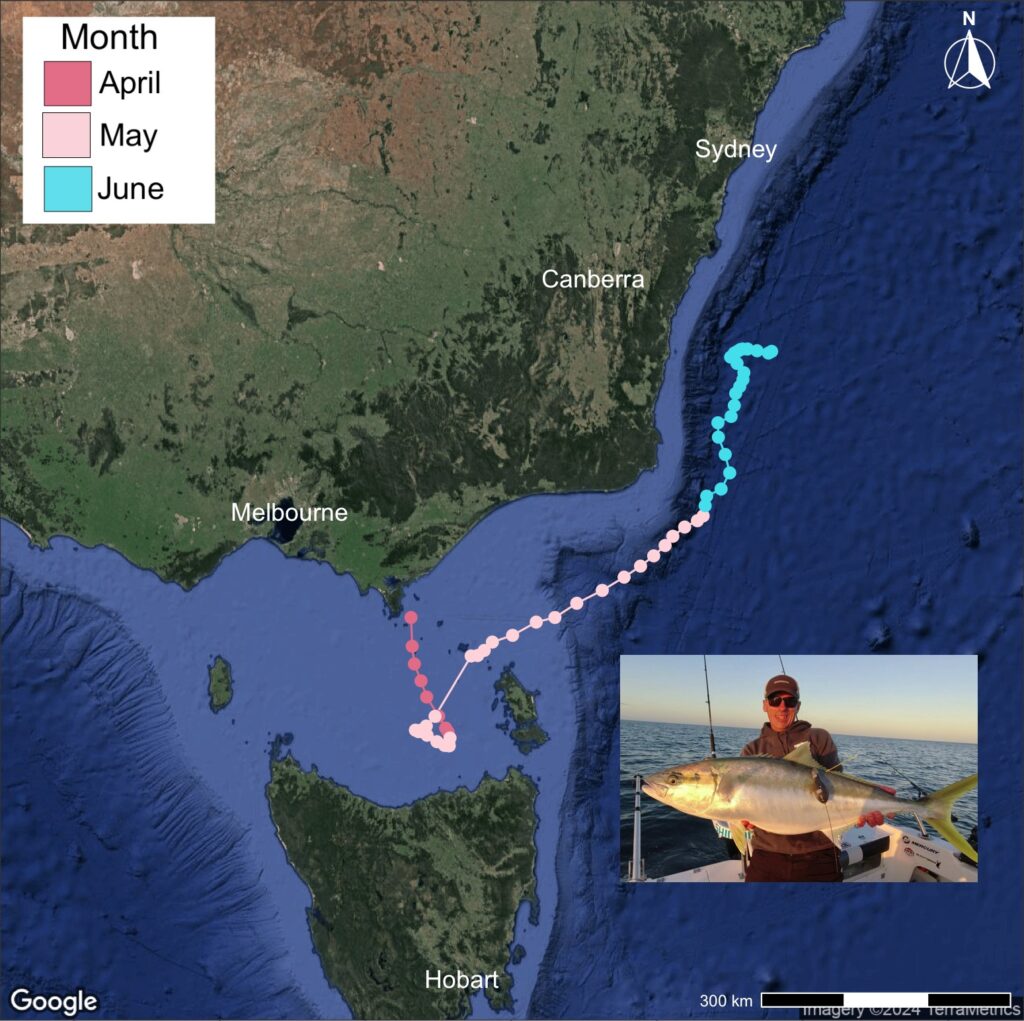
Funded by the New South Wales Recreational Fishing Trusts and the Victorian Recreational Fishing Grants Program, Project Kingfish is led by the Sydney Institute of Marine Science in collaboration with scientists and recreational fishers.

